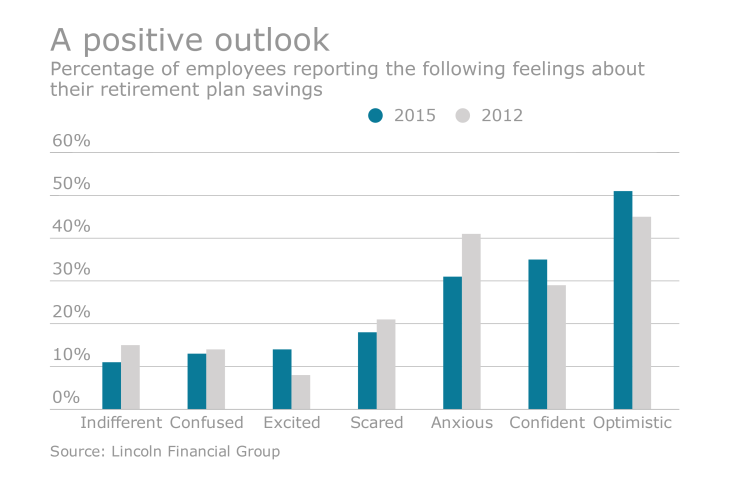An increasing number of employees want personalized, on-demand retirement advice that’s offered through digital channels, especially in an age where more than half of workers (53%) don’t receive any advice on their retirement investments, according to a new study from Betterment for Business.
Workers are looking to receive advice “as often as a question arises”” through channels like email and 1:1 sessions, according to “the State of Consumer Retirement Advice” report. They also want access to employer educational materials and digital resources, says the technology-led 401(k) provider.
Across generations, the report found that millennials expressed the most interest in frequent communications and tend to be

Although employees aren’t receiving advice, they still trust their financial advisers even in the wake of the public discussion of the Department of Labor fiduciary rule. About two in five employees (42%) could identify the term “fiduciary” and one in five employees thought the terms “fiduciary” and “financial adviser” are synonymous, according to the report.
See also:
Of those workers who are aware of the Labor Department’s rule, 84% have not taken action, such as asking their adviser if they are a fiduciary.
“The recent fiduciary ruling developments have spurred conversation around what credible advice should look like, and many advocates of the rule have hoped that investors would demand accountability from their financial professionals,” says Betterment CEO Jon Stein. “All savers have the right to sound, reliable and personalized advice on their retirement investments, and as people demand and exercise that right, retirement outcomes can improve.”
The online survey, conducted by Market Cube in 2017, polled 1,051 employees who contribute to a 401(k) plan at small and mid-sized companies.
The report also found that behavioral nudges, such as starting employees at 6% and escalating contributions by 1% each year, would effectively place employees on the path of least resistance to retirement readiness.





